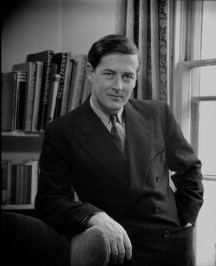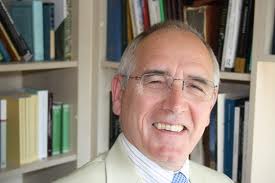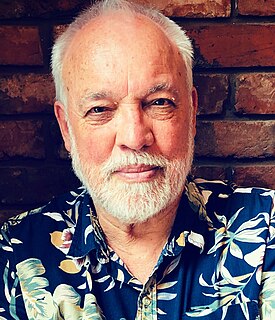Related Research Articles

Classics or classical studies is the study of classical antiquity. In the Western world, classics traditionally refers to the study of Classical Greek and Roman literature and their related original languages, Ancient Greek and Latin. Classics also includes Greco-Roman philosophy, history, archaeology, anthropology, art, mythology and society as secondary subjects.

Benjamin Hall Kennedy was an English scholar and schoolmaster, known for his work in the teaching of the Latin language. He was an active supporter of Newnham College and Girton College as Cambridge University colleges for women.
The Latin phrase gradus ad Parnassum means "steps to Parnassus". It is sometimes shortened to gradus. The name Parnassus was used to denote the loftiest part of a mountain range in central Greece, a few kilometres north of Delphi, of which the two summits, in Classical times, were called Tithorea and Lycoreia. In Greek mythology, one of the peaks was sacred to Apollo and the nine Muses, the inspiring deities of the arts, and the other to Dionysus. The phrase has often been used to refer to various books of instruction, or guides, in which gradual progress in literature, language instruction, music, or the arts in general, is sought.
Events from the year 1830 in the United States.

Geoffrey Stephen Kirk, was a British classicist who served as the 35th Regius Professor of Greek at the University of Cambridge. He published widely on pre-Socratic philosophy and the work of the Greek poet Homer, culminating in a six-volume philological commentary on the Iliad published between 1985 and 1993.

University College London (UCL) was founded on 11 February 1826, under the name London University, as a secular alternative to the strictly religious universities of Oxford and Cambridge. It was founded with the intention from the beginning of it being a university, not a college or institute. However its founders encountered strong opposition from the Church of England, the existing universities and the medical schools which prevented them from securing the Royal Charter under the title of "university" that would grant "London University" official recognition and allow it to award degrees. It was not until 1836, when the latter-day University of London was established, that it was legally recognised and granted the authority to submit students for the degree examinations of the University of London.
Patricia Elizabeth Easterling, FBA is an English classical scholar, recognised as a particular expert on the work of Sophocles. She was Regius Professor of Greek at the University of Cambridge from 1994 to 2001. She was the 36th person and the first — and, so far, only — woman to hold the post.
The Society for the Promotion of Hellenic Studies, known as the Hellenic Society, was founded in 1879 to advance the study of Greek language, literature, history, art and archaeology in the Ancient, Byzantine and Modern periods. The first President was J. B. Lightfoot, the biblical scholar and Bishop of Durham. Ioannis Gennadius helped found it.
Quain Professor is the professorship title for certain disciplines at University College London, England.

Chris Carey, FBA is a British classical scholar, currently Professor Emeritus of Greek at University College London (UCL). He held the Professorship of Greek at UCL, from 2003 until his retirement in 2016. In April 2000 The Independent named him one of the "stars of modern classical scholarship".
Alexander Jolly was bishop of Moray, Ross and Caithness in the Scottish Episcopal Church.
The Professorship in Latin at University College London (UCL) is one of the original professorships at UCL. Along with the Professorship in Greek, the chair dates back to the foundations of the university in the 1820s. The first holder was the Rev. John Williams, "but he resigned in June, 1828, in deference to the opposition of his ecclesiastical superiors to the secular character of the university". Williams was succeeded by T. Hewitt Key, who was a founder of University College School and served as Head Master as well as Professor. The chair, which is a full-time position, has been occupied by a series of distinguished scholars including J. R. Seeley, Robinson Ellis, A. E. Housman, H. E. Butler, Otto Skutsch, George Goold, and Malcolm Willcock.
Barbara Graziosi is an Italian classicist and academic. She is Professor of Classics at Princeton University. Her interests lie in ancient Greek literature, and the way in which readers make it their own. She has written extensively on the subject of Homeric literature, in particular the Iliad, and more generally on the transition of the Twelve Olympians from antiquity to the Renaissance. Her most recent research was a project entitled 'Living Poets: A New Approach to Ancient Poetry, which was funded by the European Research Council.
Carol Margaret Handley was headmistress of Camden School for Girls (1971–85) and President of the Classical Association (1996-7). Handley is now a classics tutor at Wolfson College, Cambridge. Handley is known for her longstanding advocacy for Classics education in schools and universities, as well as for her work on teaching and examination materials for the Joint Association of Classical Teachers and for the University of Cambridge.

Augustus Samuel Wilkins (1843–1905) was an English classical scholar. He held a professorship of Latin in Manchester for 34 years.

Christopher Allan Stray is a British historian of classical scholarship and teaching.
References
- ↑ Bellot, H. Hale (1929). University College, London, 1826-1926. London. pp. 39, 46, and chart.
- ↑ Long, George (1836). "Observations on the Study of the Latin and Greek Languages". The Schoolmaster. 2: 267–305.
- ↑ Stray, Christopher (1998). Classics Transformed: Schools, Universities, and Society in England, 1830-1960. Oxford. p. 62.
- ↑ For a list of holders until the 1920s, see Hale Bellot, chart 1.
- ↑ For the obituary of Goodwin in the Times, click here: http://en.wikisource.org/wiki/The_Times/1892/Obituary/Alfred_Goodwin. Retrieved 25 May 2015.
- ↑ For a likeness of Platt, click here: http://www.npg.org.uk/collections/search/person/mp99547/john-arthur-platt. Retrieved 25 May 2015.
- ↑ See the incumbent's website at https://www.ucl.ac.uk/classics/people/academic-staff/phiroze-vasunia. Retrieved 8 June 2021.